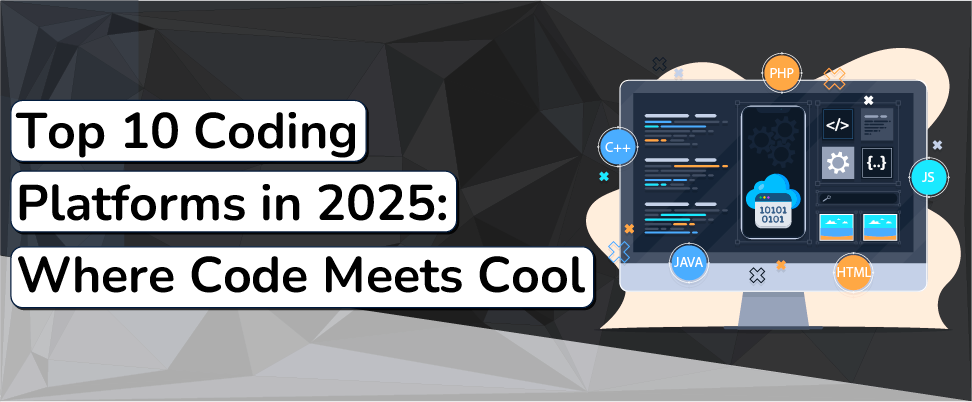Table of Contents
ToggleIntroduction
As 2024 winds down, we’re all wondering what’s next—both in life and, of course, in the coding world. Whether you’re a fresh-faced newbie or a seasoned pro, finding the right coding platform is key. After all, it can make the difference between feeling like a rockstar developer or someone who’s just slammed their keyboard in frustration. With so many tools out there, it’s tough to know which ones really stand out. Luckily, we’ve cut through the noise to bring you the best coding platforms that’ll help you level up your skills in 2025!

Don't miss out on your chance to work with the best
Apply for top global job opportunities today!
10 Best Coding Platforms in 2025
1. LeetCode
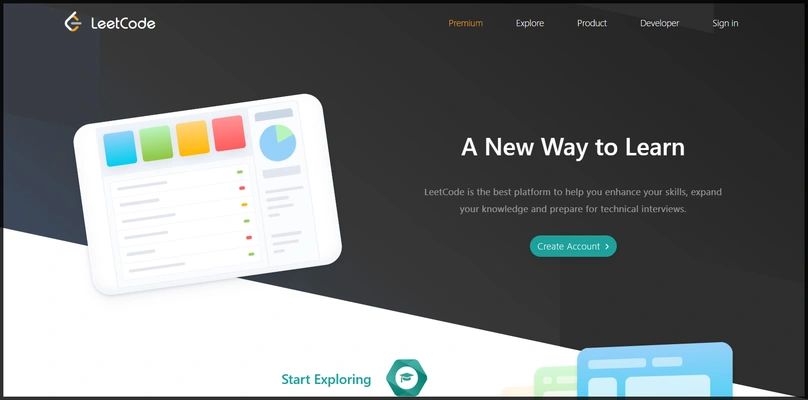
Best for: Competitive programming and technical interviews
Pricing: Free, with premium plans starting at $35/month.
LeetCode is still the reigning champ for anyone prepping for coding interviews in 2025. The platform has thousands of problems that will have you sweating bullets in the best possible way. From dynamic programming to databases, you’ll be tackling the same kind of questions that top tech companies ask in their interviews. They’ve also stepped up their community game, with new discussion boards and live challenges to keep you sharp.
Key Features:
- Thousands of problems across different difficulty levels
- Focus on technical interview prep (e.g., dynamic programming, algorithms)
- Live coding challenges and active discussion forums
- Robust community with support for multiple languages
Link: LeetCode
2. HackerRank
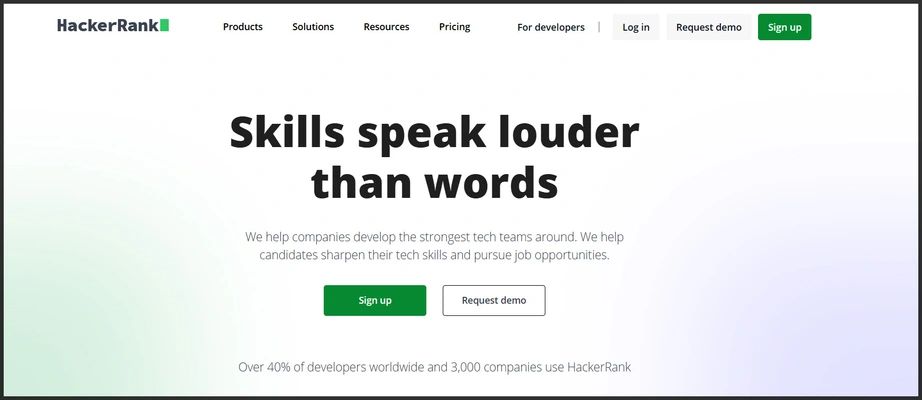
Best for: Building your coding resume
Pricing: Free, with premium features for extra challenges and mock interviews.
HackerRank is your digital playground for developers looking to showcase their skills to potential employers. The platform’s “skills certification” system lets you earn bragging rights by completing challenges that can be added to your profile (and yes, recruiters will notice). With over 30 programming languages supported, it’s a one-stop shop for coding practice and interview prep.
Key Features:
- Certification system to prove coding skills to employers
- Over 30 programming languages supported
- Real-world coding challenges with an emphasis on interview prep
- Profile building to showcase your achievements to recruiters
Link: HackerRank
Must Read: What are the top 10 in-demand jobs in India?
3. Codecademy
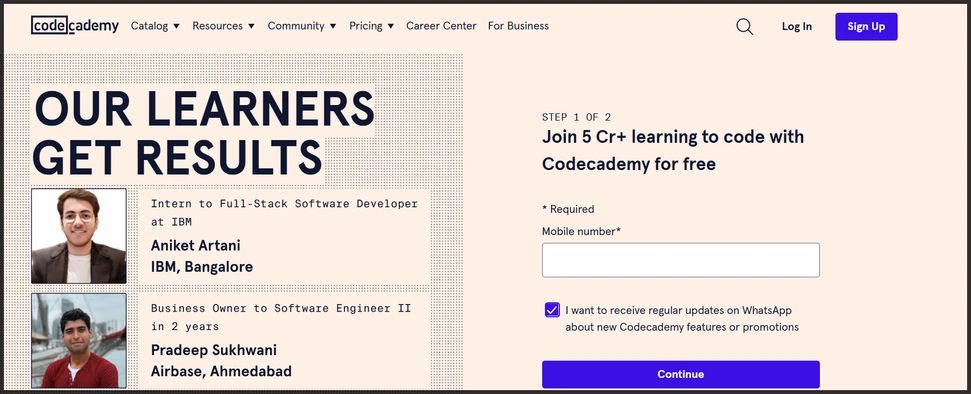
Best for: Beginners stepping into the coding world
Pricing: Free for basic lessons; Pro plans start at $39.99/month.
If you’re starting from scratch, Codecademy still holds the throne for getting the basics right. It’s beginner-friendly, interactive, and packed with step-by-step lessons that feel like a friend guiding you through code. In 2025, they’ve expanded their offerings into fields like machine learning and AI, with intuitive paths that give you real-world projects to build.
Key Features:
- Interactive, beginner-friendly lessons across multiple languages
- Career paths in machine learning, AI, web development
- Step-by-step tutorials with real-world project opportunities
- Easy-to-follow learning paths with practical coding experience
Link: Codecademy
4. FreeCodeCamp

Best for: Self-learners on a budget
Pricing: Totally free.
If you’re looking for a 100% free coding education that won’t skimp on quality, FreeCodeCamp continues to be the go-to platform. They’ve revamped their curriculum to include more hands-on coding projects, all geared towards building a killer portfolio. Plus, their global community has only grown stronger, with local meetups, support groups, and open-source projects you can contribute to.
Key Features:
- Comprehensive curriculum with hands-on coding projects
- Open-source contributions and a global community for networking
- Focus on portfolio-building for job-ready skills
- Support for languages like JavaScript, Python, and more
Link: freeCodeCamp
5. Exercism
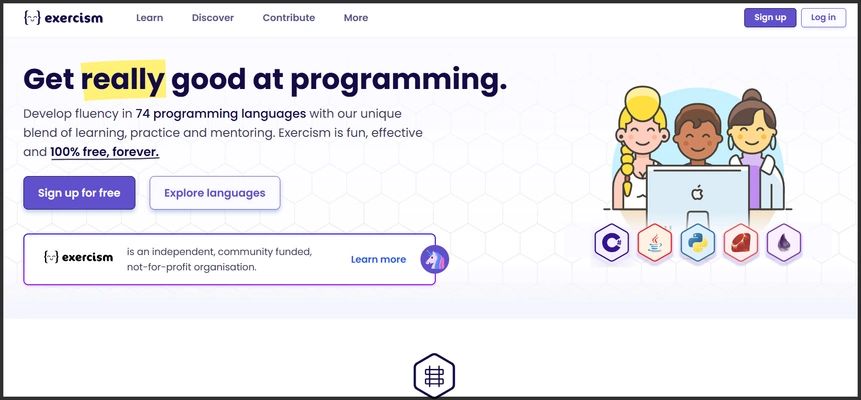
Best for: Learning with real-world mentorship
Exercism takes a unique approach by pairing learners with mentors for 1-on-1 feedback. Whether you’re grinding away on Python, Ruby, or Rust, you’ll get constructive guidance from seasoned devs. In 2025, they expanded into more specialized tracks, offering cybersecurity, data science, and blockchain mentorship. Perfect for those who crave a bit more than just automated feedback.
Key Features:
- Paired mentorship with personalized feedback on coding projects
- Tracks for languages like Python, Ruby, Rust, and more
- Expanded mentorship into new fields like cybersecurity and blockchain
- Focus on real-world skills and detailed guidance from experienced devs
Link: Exercism
6. Codewars
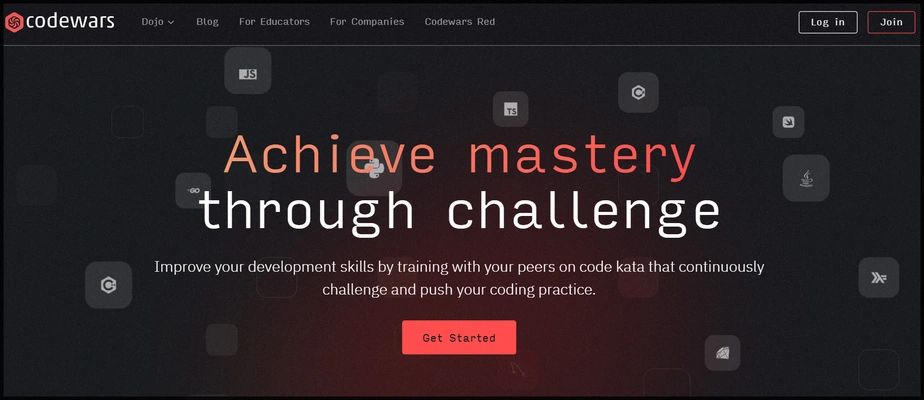
Best for: Gamified learning and improving problem-solving skills
Pricing: Free, with paid memberships for extra features.
Codewars makes learning feel like a video game, with coding challenges set up as “kata” that get tougher as you advance. The more you solve, the more you level up, unlocking harder problems and earning respect in the community. It’s a fun, addictive way to improve your coding chops, especially if you’re naturally competitive.
Key Features:
- Challenge-based learning with increasing difficulty levels (“kata”)
- Level up by solving problems and unlocking tougher challenges
- Community engagement through rankings and discussions
- Wide range of programming languages supported for problem-solving
Link: Codewars
Must Read: Best Coding Practices for Developers
7. EdX
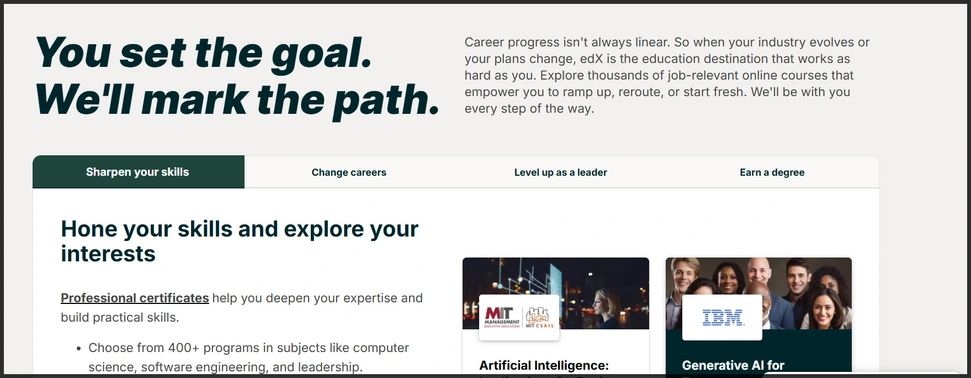
Best for: College-level courses from top universities
Pricing: Free to audit; certificates available for purchase, and bootcamps start at $1000.
Want to learn from the best? EdX offers courses from MIT, Harvard, and other prestigious institutions, covering everything from web development to machine learning. In 2025, EdX has refined its partnership with these universities, offering accredited coding bootcamps that give you the same level of education as an on-campus student, minus the student loans.
Key Features:
- Access to courses from institutions like MIT and Harvard
- Accredited coding bootcamps with certifications
- Topics covering web development, data science, AI, and machine learning
- High-quality education comparable to on-campus learning
Link: EdX Platform
8. Udemy

Best for: Learning specific frameworks and technologies
Pricing: Courses usually start at $11.99 during sales.
With thousands of coding courses on every conceivable topic, Udemy remains a treasure trove for anyone looking to master specific languages, frameworks, or technologies. Need to brush up on your React skills or dive into Kubernetes? Udemy’s got you covered. New courses are added regularly, so you’ll never be short of fresh content.
Key Features:
- Huge library of coding courses on everything from React to Kubernetes
- New courses are added regularly to keep up with evolving technologies
- Self-paced learning with video tutorials and practice exercises
- Lifetime access to purchased courses
Link: Udemy
9. Coursera

Best for: Structured learning with academic credentials
Pricing: Free to audit; certificates start at $39 per month.
Coursera offers full-blown certifications from top-tier universities, making it a great option for a more structured education. In 2025, they’ve launched more AI and machine learning tracks, as well as partnerships with tech companies offering “professional certificates” that look great on your resume. Plus, you get to learn at your own pace.
Key Features:
- Full certifications from universities and tech companies
- Tracks in AI, machine learning, and data science
- Partnerships offering professional certifications from major tech players
- Flexible schedules with self-paced learning options
Link: Coursera
10. Scrimba
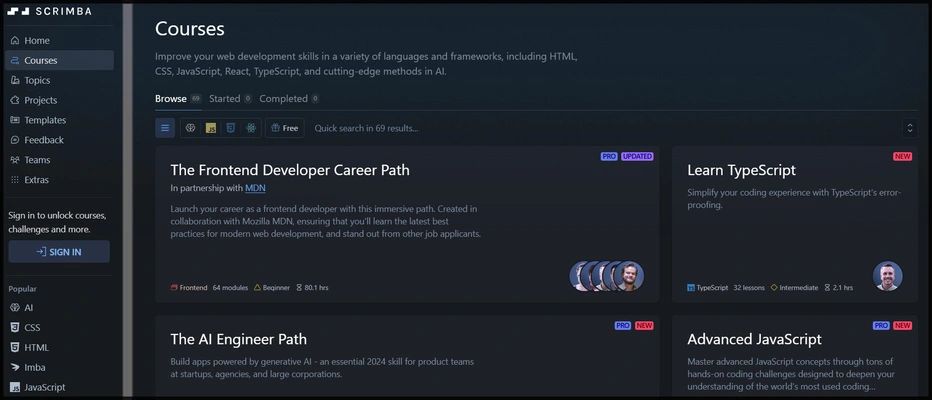
Best for: Interactive coding tutorials
Pricing: Free for basic tutorials; Pro plans start at $29 per month.
Scrimba turns traditional coding tutorials on their head by letting you pause and interact directly with the instructor’s code. It’s like watching a YouTube video but with the ability to tinker and learn in real-time. As of 2025, they’ve doubled down on making their platform super interactive, offering more career paths, from front-end development to full-stack mastery.
Key Features:
- Interactive, video-based coding tutorials where you can edit live code
- Expanded career paths in front-end and full-stack development
- Practical, hands-on coding experience in real-time
- Ideal for learners who prefer active participation over passive watching
Link: Scrimba
Best Coding Practices: Your Code’s Guide to Success
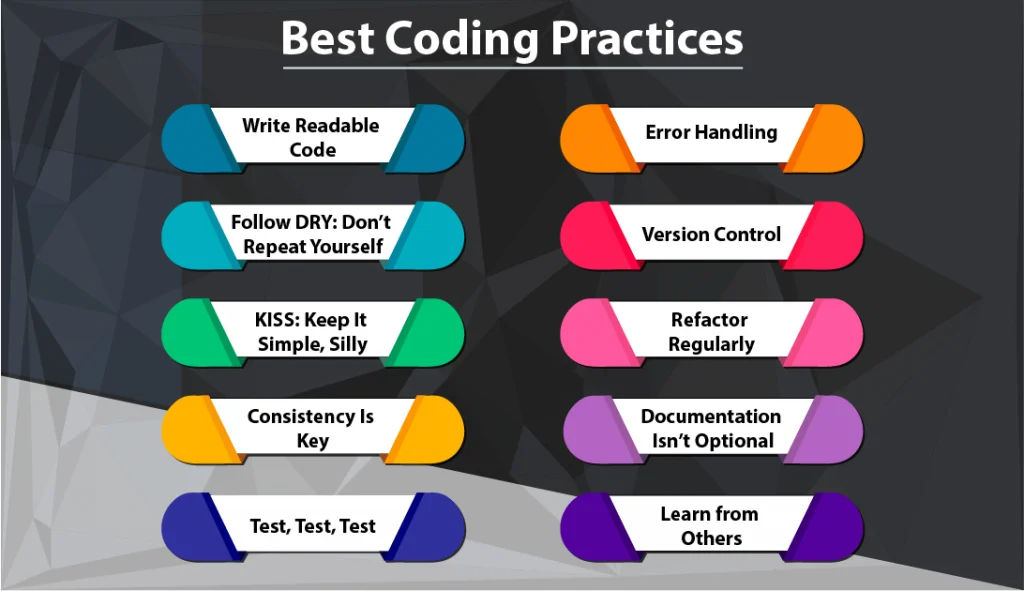
Ah, coding. It’s not just about getting things to work; it’s about making sure they keep working, even when your future self looks at the code a year from now with a cup of coffee and a confused expression. To help with that, here’s a list of coding practices that will make your code shine brighter than your favorite syntax highlighter.
1. Write Readable Code
Coding isn’t a solo sport. Whether it’s you or someone else who has to decipher it later, clear and readable code saves a lot of future headaches. Choose meaningful variable names and use comments, but sparingly—good code should explain itself.
Pro Tip: Think of your code as a story. If you’re leaving cryptic notes like “x = 9” without context, you might as well leave treasure maps with no clues.
2. Follow DRY: Don’t Repeat Yourself
There’s no need to reinvent the wheel or, in this case, repeat the same code across multiple places. If you’re typing the same logic twice, it’s time to refactor it into a function, module, or class.
Pro Tip: Imagine every line of duplicated code is a tax you’re paying. Cut the unnecessary “taxes” by refactoring repeated sections into reusable pieces.
3. KISS: Keep It Simple, Silly
Complexity is the enemy of maintainability. Your code should solve the problem efficiently, but don’t go overboard with unnecessary abstractions or clever tricks.
Pro Tip: If your code looks like it could solve quantum physics on the side, maybe tone it down a bit. Simplicity is elegance.
4. Consistency Is Key
Stick to a coding style and maintain it throughout your project. Consistency makes your code easier to read and debug, whether it’s the use of camelCase, snake_case, or how you format your brackets.
Pro Tip: Think of it like a team uniform—everyone’s on the same page, and it looks a whole lot better than a chaotic mix of styles.
5. Test, Test, Test
Test-driven development (TDD) isn’t just a buzzword. Writing tests ensures your code works as expected and that future changes won’t break existing functionality. Even if TDD isn’t your style, write unit tests for core components.
Pro Tip: Treat your code like a car engine. You wouldn’t drive it across the country without a test run first, right?
6. Error Handling: Expect the Unexpected
Your code should handle the unexpected gracefully. Instead of breaking when it encounters errors, aim for useful error messages and graceful degradation so users don’t feel like they’ve hit a brick wall.
Pro Tip: It’s not about avoiding crashes—it’s about how gracefully your code recovers from them. Let your app fail like a pro, not like a noob.
7. Version Control: Because You’re Not a Time Traveler
Using version control systems like Git is essential for tracking changes, collaborating, and even rolling back when things go south. Each commit should be small, meaningful, and accompanied by clear messages.
Pro Tip: Make your commit messages as clear as your code. No one likes scrolling through a git log filled with “fixed stuff” 20 times in a row.
8. Refactor Regularly
Code is never perfect, and after the MVP (Minimum Viable Product), there’s always room for improvement. Regular refactoring helps reduce technical debt and improve the codebase over time.
Pro Tip: Treat refactoring like spring cleaning. You don’t need to do it every day, but when you do, it’s deeply satisfying and makes everything feel fresh.
9. Documentation Isn’t Optional
Good documentation is like a map to your code’s treasure. Whether it’s inline comments, README files, or external documentation, providing context around your code will help others (and your future self) navigate it with ease.
Pro Tip: Think of documentation as the instructions for IKEA furniture—it’s frustrating when it’s bad, but when it’s good, things fit together smoothly.
10. Learn from Others
Open-source projects are great resources to see coding standards in action. Check out how seasoned developers write code, comment, and structure their projects. Coding isn’t just about writing—it’s about reading, too.
Pro Tip: Follow repositories from popular open-source projects on GitHub. It’s like watching a masterclass in real-time (but without the heavy fees).
The Final Word: Which platform best suits your needs?
In 2025, coding will be as accessible as ever, with platforms catering to every learning style, career path, and skill level. Whether you want to land your dream job at a top tech firm, build a killer app, or just get those programming gears turning, these platforms are here to help you code your way to success. So, what are you waiting for? Grab your keyboard and dive in! Also, if you are looking for that perfect job that fits your profile, sign up with Olibr now!
Take control of your career and land your dream job
Sign up with us now and start applying for the best opportunities!


